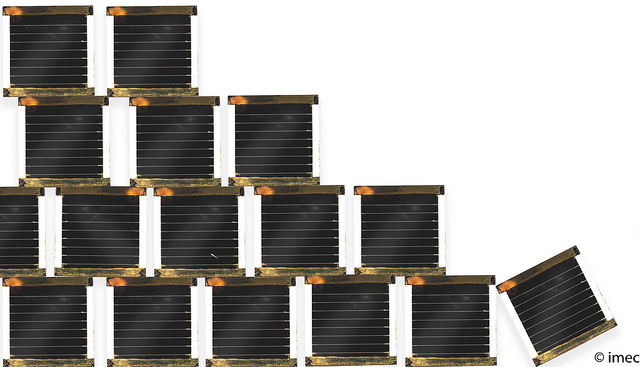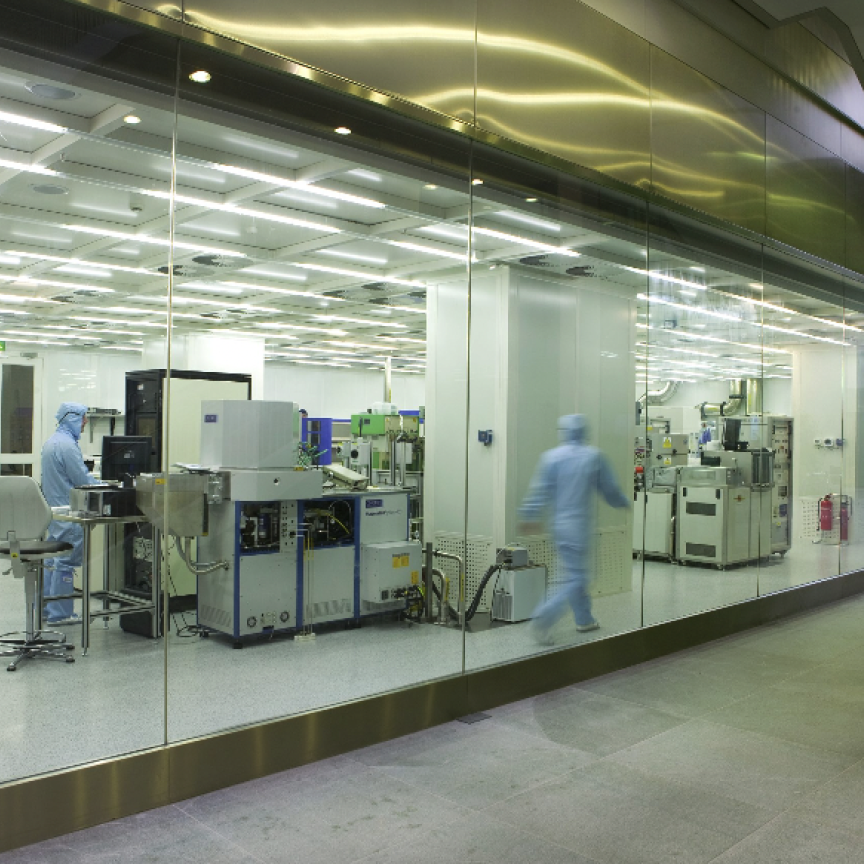Imec, a research and innovation hub in nanoelectronics, energy and digital technologies based in Belgium, has become the coordinator of a three-year EU-funded project that gathers known leaders in the field of perovskite PV technology to revolutionise Europe’s photovoltaics (PV) industry.
The ESPResSo (Efficient Structures and Processes for Reliable Perovskite Solar Modules) consortium has been granted more than €5 million by the EU to overcome the limitations of today’s state-of-the-art perovskite PV technology, bring perovskite solar cells to the next maturity level, and demonstrate their practical application.
With its low-cost materials and low temperature deposition processes, perovskite-based PV technology has the potential to succeed in the thin-film PV market. Perovskite solar cells have already demonstrated high efficiencies (above 22 per cent) that rival those of established mainstream thin-film PV technologies like copper-indium-gallium-selenide (CIGS) and cadmium-telluride (CdTe). The challenge is now to transfer the unprecedented progress that the perovskite PV cell technology has made in recent years from its cell level into a scalable, stable, low-cost technology on module level.

Perovskite based photovoltaic module/thin-film PV module (2016). This is composed of 8 single cells in monolithic series connection. Imec studies interconnection techniques to maximise the module active area, which is already above 95 per cent in these modules. The modules have a perovskite based active layer and are processed on a glass substrate
‘Perovskite cells demonstrate clear potential to support the world’s energy demands cost-effectively. The ultimate aim of the partners of the ESPResSo project is to achieve this by bringing perovskite photovoltaics from the lab to the fab,’ stated Tom Aernouts, imec group leader of thin-film photovoltaics.
The ESPResSo team are targeting alternative cost effective materials, novel cell concepts and architectures, and advanced processing know-how and equipment to overcome the current limitations of this technology. The consortium aims to bring the cell performance close to its theoretical limit by demonstrating cell efficiency of more than 24 per cent (on 1cm²) and less than 10 per cent degradation in cell efficiency following thermal stress at 85°C, 85 per cent RH for more than 1,000h. Scale up activities utilising solution processed slot-die coating and laser processing will additionally deliver modules with more than 17 per cent efficiency showing long-term (more than 20 years) reliable performance as deduced from IEC-compliant test conditions.
The ESPResSo team also envisions integrating modules in façade elements demonstrating a levelised cost of electricity (LCoE) of ≤ 0.05€/kWh. Prototyping advanced and arbitrary-shaped architectures with specific materials and process combinations will emphasise that new highly innovative applications like on flexible substrates, or with high semi-transparency, are well accessible in the mid- to longer-term with this very promising thin-film PV technology.
The members of the consortium include research organisations Ecole Polytechnique Federale de Lausanne (EPFL), Switzerland and Consiglio Nazionale delle Ricerche (CNR), Italy; perovskite solar cell scale-up and industrialisation members imec, Belgium, Universita degli Studi di Roma Tor Vergata, Italy and Fraunhofer Institute for Solar Energy Systems ISE, Germany; and experts in sustainability and renewable energies CSGI (Consorzio Interuniversitario per lo Sviluppo dei Sistemi a Grande Interfase), Italy and University of Cyprus, Cyprus.
Members representing materials development include Dycotec Materials (UK), Dyenamo (Sweden) and Corning (France); equipment manufacturer, M-Solv (UK); along with perovskite solar cell technology developers Saule Technologies (Poland) and building-integrated photovoltaics developer, Onyx Solar Energy (Spain).

